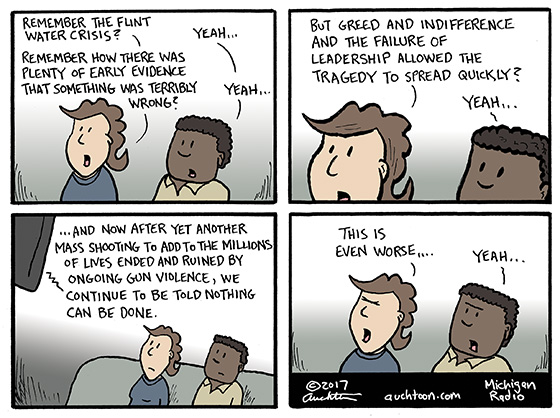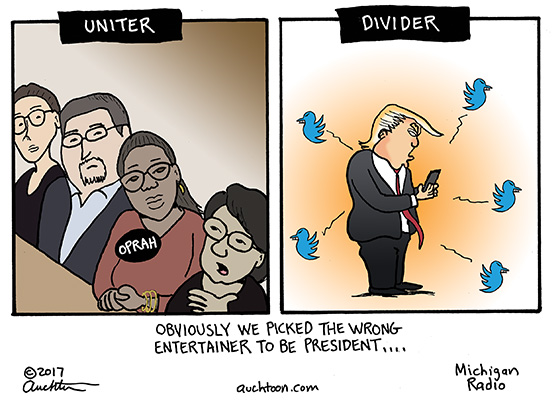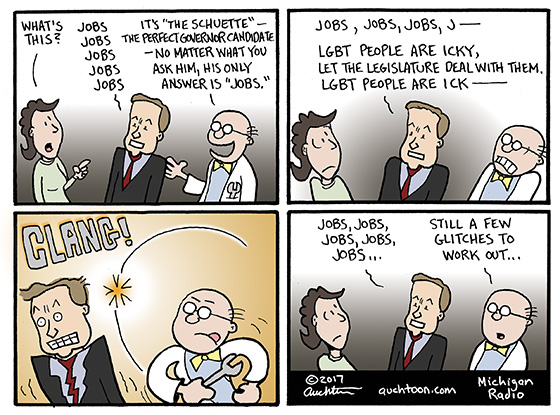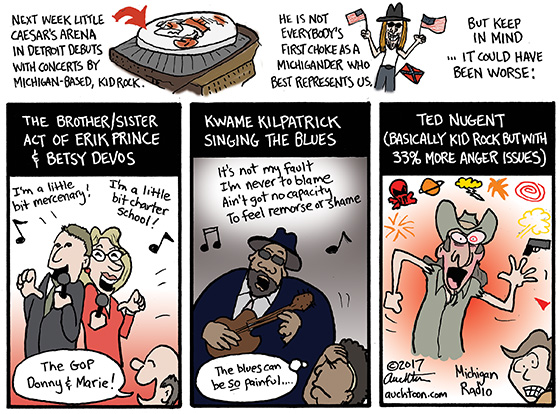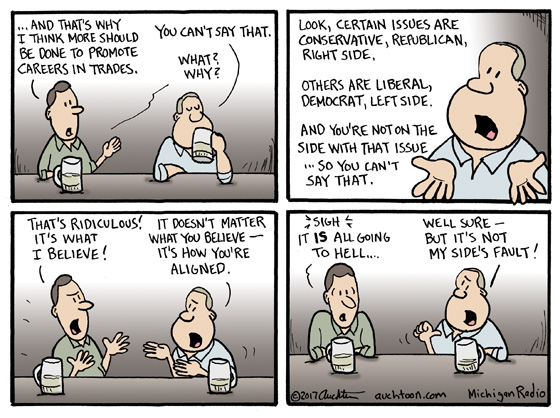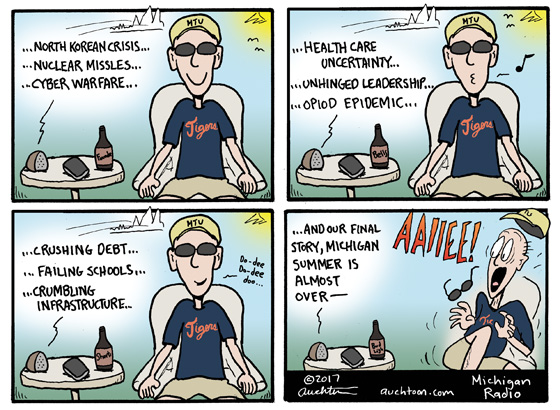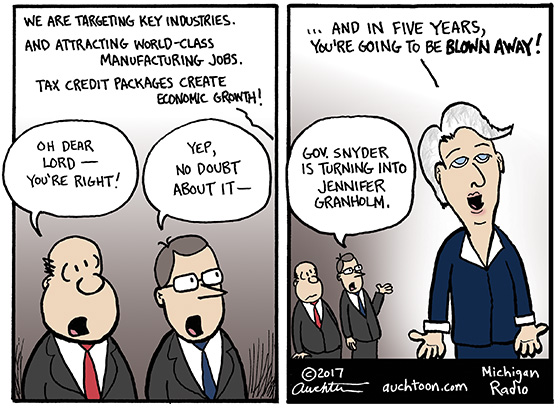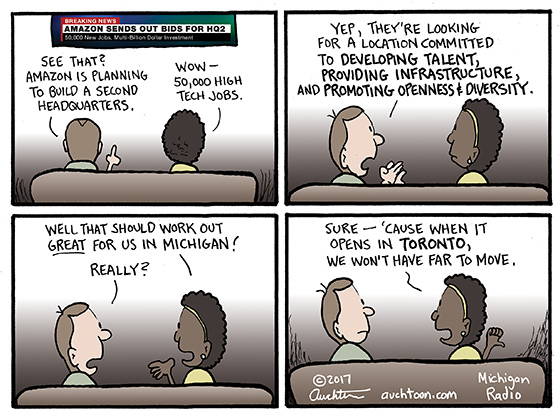

The cartoon wasn’t necessarily meant as an indictment of Michigan (although our embarrassing weaknesses in education and public transportation will likely prevent us from winning the Amazon HQ2 sweepstakes). It was meant as an indictment of the United States as a whole.
Now before I end up in stump speech for some publicity-grubbing pop star running (or not running) for Senate, let me say some nice things about America. America is great. America has vast resources. America is very wealthy. America has lots of talent.
And yet we can’t seem to make a commitment these days to leverage our advantages. For example, in the few days it took to conceive and create this cartoon, protections for immigrants who are part of the Deferred Action for Childhood Arrivals (DACA) program have been all over the board. Is the program over? Is it not? Do we have a deal? Will there be a law? What is actually going to happen? Businesses and (more importantly) people cannot make plans in such an environment.
America is a country of immigrants. This is possibly our biggest advantage. But each time we waver, we let our unique advantage get chipped away.
Last week there was a story in the Holland Sentinel about Basel Alyasin, an immigrant who fled Syria with his family at the outbreak of the civil war in 2011.
After moving their way around the Middle East, the Alyasin family eventually made it to Grand Haven, Michigan last year. Alyasin opened an electronics repair business on Main Street in downtown Zeeland and set about living the entrepreneurial, small-business, coming-to-America dream. You know, the one that pays the taxes, creates jobs, and builds the economy.
But now the Alyasin family has decided to move to Canada. They cannot be sure of their status in the United States, so before they become more invested, they are leaving. Maybe not for a better opportunity but certainly for a better commitment.
The truth is, the chances of the second Amazon headquarters ending up in Canada are pretty slim. But the chances of the next Amazon being created in Canada (and not the United States) are getting better and better.
